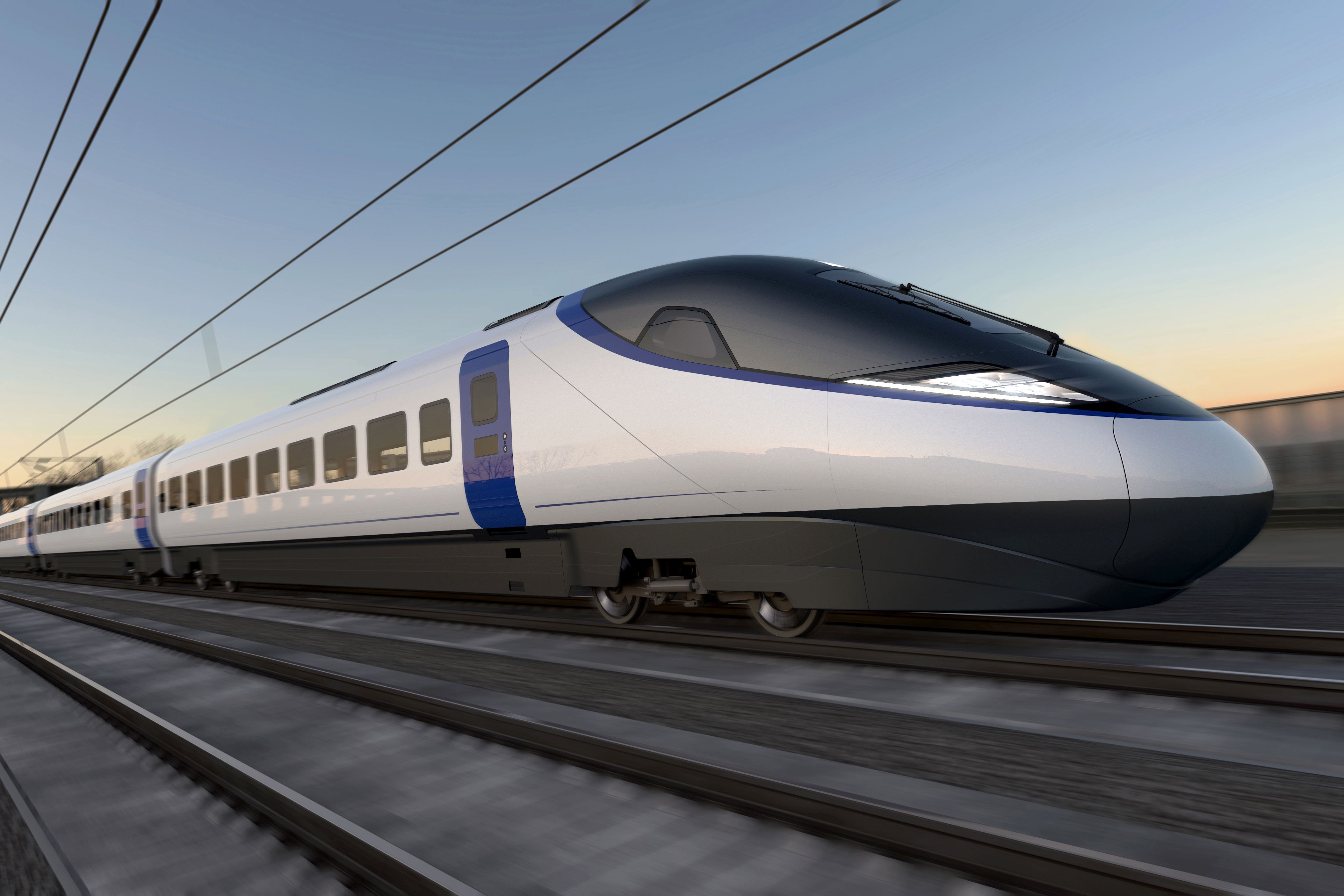The HS2 dream has been derailed – but it hasn’t entirely hit the buffers
So much for a Japanese-style Bullet train whisking you through England in minutes, rather than hours, sighs Sean O’Grady. But perhaps we should let bygones be bygones, as the economists say…


Economists have a favourite expression for examining the feasibility of badly over-run projects – “bygones are bygones”. Or, in equally colloquial English, there is no point in throwing good money after bad. It’s generally a very shrewd rule: there would be no problem gamblers if the maxim was pasted up on betting websites and bookies’ shops, and perhaps unhappy marriages might be put out of their misery sooner than later.
Which brings us to HS2 and the discussions between the chancellor and prime minister about the bit of the line from Birmingham to Crewe and Manchester.
This is pretty much all that’s left of the original dream of a Japanese-style Bullet train whisking you through the great cities of England in minutes, rather than hours. Well, the ambition to reach Newcastle, York and Leeds has already been abandoned and now the Crewe/Manchester branch is in jeopardy. The reason? Money.
As The Independent reported, the briefing document for the Hunt-Sunak “bilat” indicates that the government has already spent £2.3bn on stage two of the high-speed railway from Birmingham to Manchester – but shelving the northern phase would now save up to £34bn.
Shall we let bygones be bygones? Certainly, we shouldn’t be unduly influenced by the fact that we’ve spent (arguably, wasted) £2.3bn already. That’s gone now, never to be seen again; no matter what is done. Things might be different if it were the other way around – £34bn spent and only £2.3bn to complete. But it isn’t.
You could argue that the whole point of HS2 was to relieve chronic congestion on the railways – Jeremy Corbyn’s famous “ram-packed” journey on the vestibule floor being a memorable symbol of the problem.
So, in those terms, the entire project will be redundant without its Northern branches. Indeed, you might well say a good deal of rationale has been lost along with the services to Leeds, York, Newcastle and other branch lines in the Midlands and North.
Delete the power of “bygones are bygones” – those feel like legitimate arguments. One problem is that although the case for HS2 as a contribution to boosting long-term growth remains strong, it does require commitment and determination. This is obviously much more difficult when money is tight. As the economic jargon goes, the opportunity cost of £1bn spent on HS2 is the £1bn not spent on, say, our universities or on green energy.
It is even more difficult to make the case for HS2 because so many of its benefits will arrive long after everyone involved in deciding its fate has departed for that great parliament in the sky. The fact that the first proper railway service was established in Britain 200 years ago next year ought to remind us that railways are for the very long run; when – to deploy yet another economists’ maxim – we’re all dead (though the thrust of Keynes’ expression was rather different).
So it’s difficult, and all we can really say is that the chancellor and prime minster are right to be reviewing it. They should not be influenced by fallacies about sunk investment; and they are duty-bound to ask if the money might be better allocated elsewhere, leaving aside politics.
A swifter transition to green energy, say (including a revived nuclear programme), might well yield greater industrial, consumer and environmental advantages than the HS2 project – and lower costs, boost productivity and raise living standards well within our lifetimes.
Imagine fuel bills slashed to a fraction of where they are now. You have to admit, that is tempting, isn’t it? Let bygones be bygones.



Join our commenting forum
Join thought-provoking conversations, follow other Independent readers and see their replies
Comments